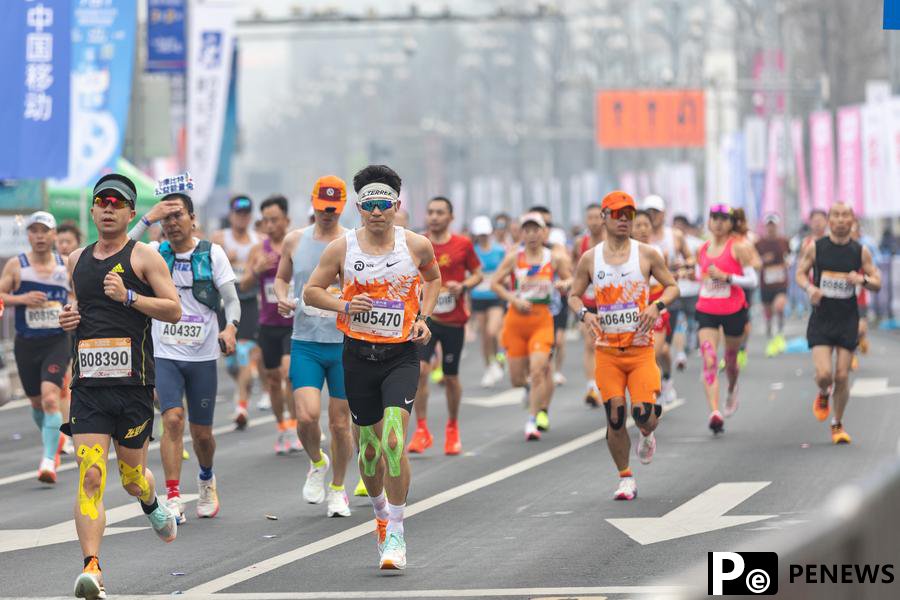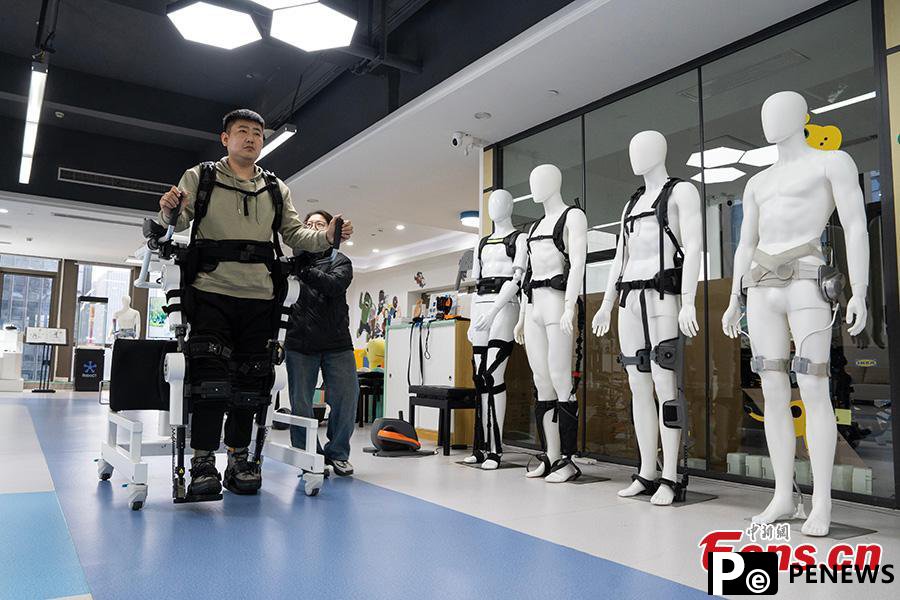Home>>
Xi Jinping -- a champion of mutual learning among civilizationsBy Huang Yinjiazi (Xinhua) 13:58, March 14, 2025
BEIJING, March 14 (Xinhua) -- In the book-lined office of Professor Stelios Virvidakis at the University of Athens, Greece's oldest and most esteemed academic institution, a letter is carefully preserved like a precious, delicate bridge model.
It came from Chinese President Xi Jinping, delivered to congratulate the inauguration of the China-Greece Center for Mutual Learning of Civilizations in the time-honored university in February 2023.
"It was a delightful surprise to us all," said Virvidakis, his philosopher's gaze softening at the memory.
In the letter, Xi noted that over 2,000 years ago, China and Greece, two civilizations glittering at each end of the Eurasian continent, made groundbreaking contributions to the evolution of human civilization.
Now, he pointed out, it is of profound historical and contemporary significance for them to work together to promote exchanges and mutual learning and enhance the development of all civilizations.
The well-preserved letter reflects Xi's broader vision of fostering cross-cultural dialogue and mutual learning as a catalyst for global peace and development, a vision that has been driving his diplomatic action worldwide.
That aspiration is best embodied in his Global Civilization Initiative (GCI), launched at a conference between the Communist Party of China (CPC) and global political parties in 2023, where he stressed that tolerance, coexistence, exchanges and mutual learning among different civilizations play an irreplaceable role in advancing humanity's modernization process when the future of all countries are closely connected.
With the GCI nearing its second anniversary on Saturday, Xi's vision -- to build a world where civilizations don't collide but converse -- has become ever more relevant, standing both as a nod to ancient ties and as a bold stitch in a fraying global tapestry.
NO MATTER EAST OR WEST
"The boy was an avid reader of literature and history, particularly captivated by the poetry of Du Fu," said Chen Qiuying, who taught Xi Chinese in 1965, when Xi was a teenager.
Du, the most revered realist poet of the Tang Dynasty (618-907), was celebrated for his profound empathy and compassion for the common people in his works. This spirit is echoed in Xi's firm commitment to fighting poverty and promoting the wellbeing of the people.
"Xi implored me to recommend more of Du Fu's works," Chen recalled. "He possessed a composed and rational demeanor, immersing himself in extensive reading and profound contemplation."
Four years later, as an educated young student, Xi volunteered to go to Liangjiahe, a secluded and impoverished village nestled in the rugged terrain of northwest China's Shaanxi Province.
With him, Xi carried two suitcases filled with books. During his seven years there, Xi devoured whatever books he could find, from ancient Chinese textbooks to foreign novels such as Stendhal's The Red and the Black and Leo Tolstoy's War and Peace.
"During those days in Liangjiahe, Xi never ceased reading and reflecting," said Dai Ming, who shared a cave dwelling with Xi back then.
Xi's keen interest in different cultures has since continued unabated, whether as a local official or as the top leader of China. When serving as secretary of the CPC Zhejiang Provincial Committee, he invited scholars to deliver lectures on both Chinese and Western philosophies.
In November 2019, during his first state visit to Greece, Xi toured the Acropolis Museum at the foot of the iconic and ancient Acropolis. He took a moment at the sunlit entrance on the museum's third floor, the east and west sides adorned with exquisite pediment sculptures from the Acropolis: the birth of Athena and the fierce contest between her and Poseidon for the title of protector of Athens.
"This is Greece's version of Shan Hai Jing," Xi remarked, alluding to China's own ancient compendium of ancient myths and legends.
"He is not only interested in a single artifact," said Dimitrios Pandermalis, then president of the Acropolis Museum. "He possesses a profound fascination with the civilization of ancient Greece and its history, along with a keen appreciation for ancient Greek art and architecture."
THE POWER OF EXCHANGES
Ahead of his state visit to Peru in November last year, Xi published a signed article in Peruvian newspaper El Peruano, reflecting on the Intihuatana stone -- an ancient altar in Machu Picchu where the Incas tracked the seasons and crafted calendars based on the shifting solar shadows.
He noted that the structure operated on the same principles that inspired the creation of sundials in ancient China. "Many told me that Chinese and Peruvian peoples would feel an instant warmth upon their first encounters and would have a deja vu when appreciating each other's ancient artifacts," he wrote.
Since assuming Chinese presidency, Xi has made cultural exchange a hallmark of his diplomatic approach. Cultural exchange is a project aimed at "bringing the hearts and minds of the people closer together and building a better future," he has said, a belief he has carried since his days working at local positions.










